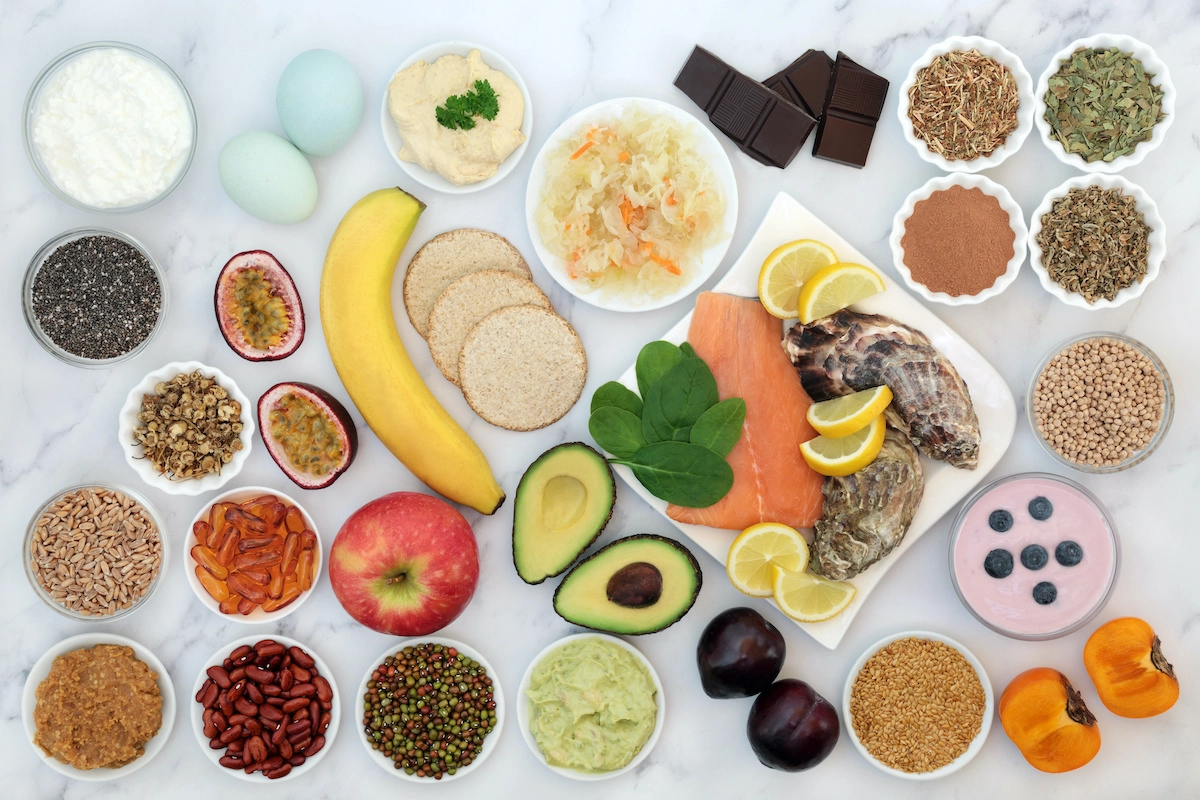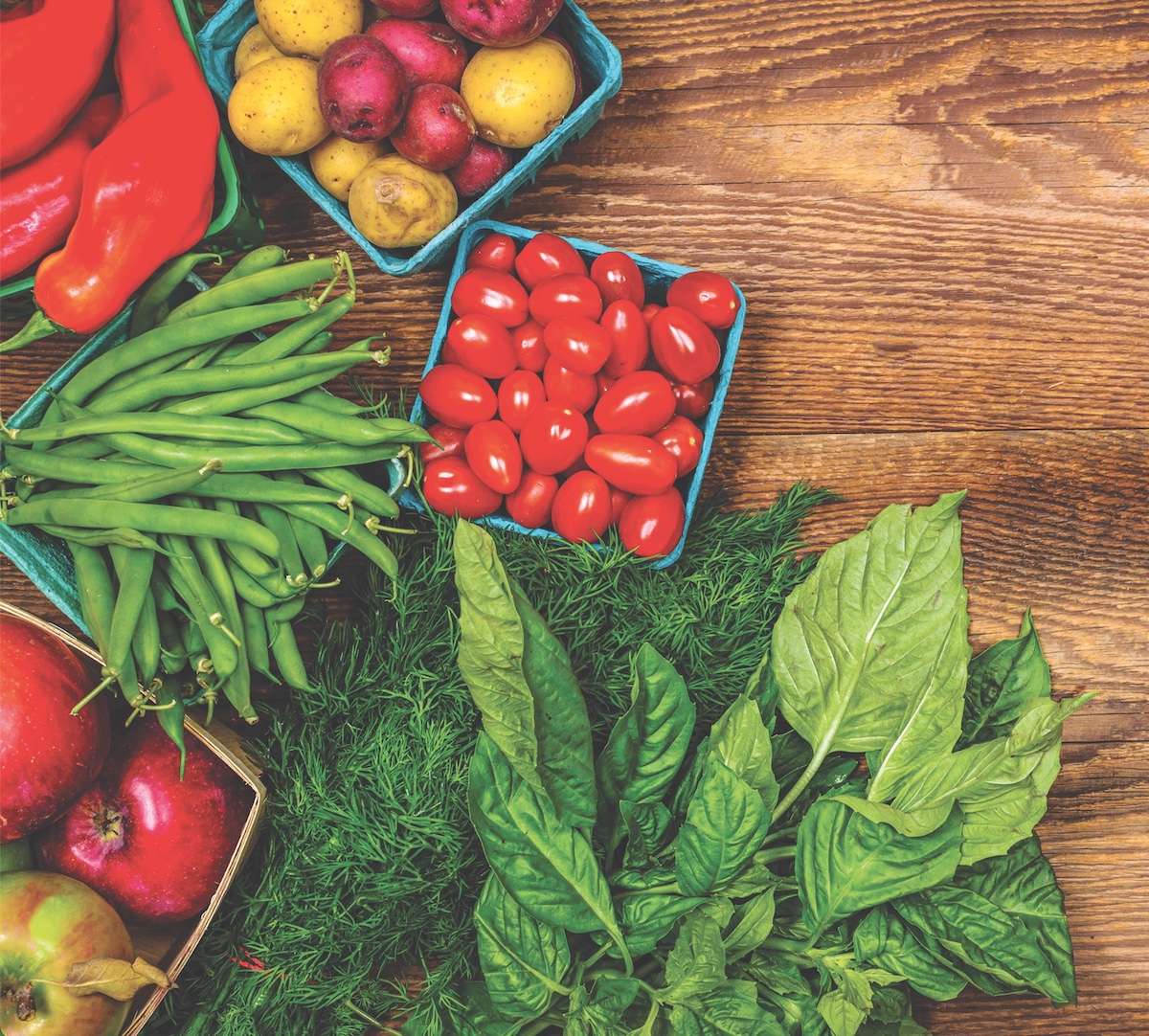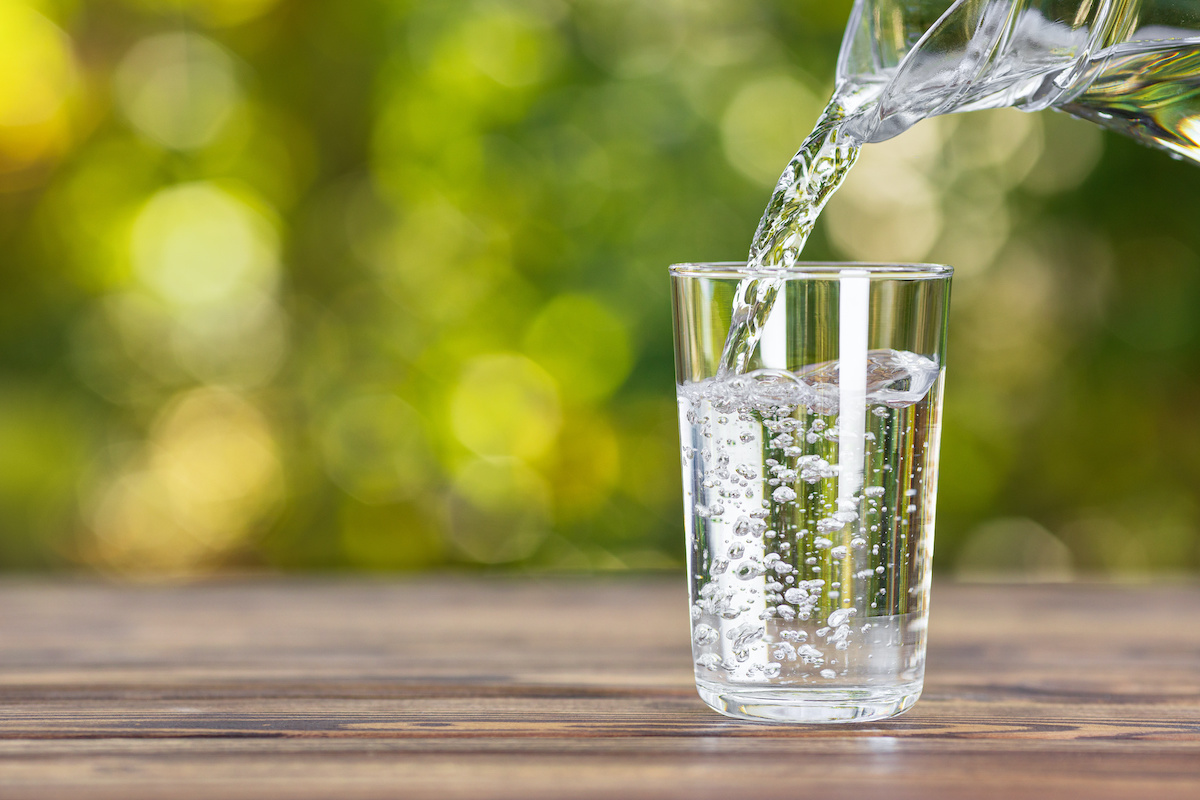
Scientific research has found that those who maintain a high potassium, low sodium diet are less anxious, depressed, confused and angry, and have more energy and vigor. As a major player in dopamine metabolism, potassium has proven in research to rapidly improve mood. It is well established that people with mood and psychiatric disorders are quite often deficient in vitamin C. In fact, the higher our vitamin C levels are, the less confusion, anger, and depression we have, according to one study. Other studies have effectively used vitamin C to complement other interventions in the treatment of depression.
Yummy, mood-boosting foods and treats:
Peppermint: Peppermint has been proven in studies to help with memory and to relieve stress, making it the perfect sweet treat to cope with the whirlwind nature of a busy day.
Apples: Apples are abundant in a type of antioxidant called flavonoids, which demonstrated in research the ability to improve mood within just two hours of eating them! In one study, flavonoids improved cognitive function and the effects lasted six hours post-consumption. Apples are loaded with other feel-good substances too, such as B vitamins. Who doesn’t love a fresh-baked apple pie? Or, for a lower-fat option, make some homemade applesauce with mood-boosting cinnamon.
Cranberries: Cranberries are loaded with vitamin C and flavonoids. Humans are one of the few animals who are unable to produce our own vitamin C, which is a major player in dopamine metabolism in the body. It is well established that people with mood and psychiatric disorders are quite often deficient in vitamin C. According to numerous studies, vitamin C rapidly improves mood. In fact, the higher our vitamin C levels are, the less confusion, anger and depression we have, according to one study. Other studies have effectively used vitamin C to complement other interventions in the treatment of depression. Boil fresh cranberries with honey, grated nutmeg and cinnamon. Or you can add some mandarin orange slices to increase the mood-boosting ability.
Yams: Yams are loaded with vitamins and minerals including potassium, which helps maintain optimal cognitive function. Low potassium intake is associate with greater risk of mood disturbances and depression. One study for example, showed that a high potassium diet improved tension and symptoms of depression. A whopping 40% of the minerals of yams are in the skin! Try twice baked yams, where you scoop out the flesh, mix it with a wee bit of maple syrup and aromatic spices such as cardamom and cloves. Top with toasted pecans for a delicious side dish.
Pumpkin/Pumpkin Seeds: Pumpkin is rich in mood-boosting minerals, such as potassium, as well as vitamin A, and B vitamins. Potassium is considered a mental-health food because of its powerful effect on mood. Low potassium levels are related to depression and mood disturbances. One study, for example, measured the effect of a high potassium, low sodium diet and found significant improvements to mood. Pumpkin seeds contain abundant tryptophan, which is a precursor of serotonin, a mood-boosting chemical produced by our bodies. In research, dietary tryptophan improved the mood of participants over the course of a four-day, high-tryptophan diet. Subjects experienced less anxiety and depressive symptoms. Pumpkin seeds are also a good source of zinc, which can give an immediate boost to mood, having an antidepressant effect. After making a great pumpkin pie, be sure to save the pumpkin seeds for roasting.
As with any dietary supplements, it is advised to consult with your healthcare provider to see if any supplements you take will negatively interact with prescribed medications. Supplements as part of a regular healthy diet should not be a problem, but if you have, for example, kidney conditions, your potassium intake may be monitored.
Mind and body boosting nutrients:
Folate (Folic Acid, Vitamin B9). Increased intake of folate is associated with a lower risk of depression.
Folate is especially important for pregnant women, but everyone needs folic acid for production of cells. It is especially important for healthy hair, skin, nails, eyes, liver, and red blood cell production.
Leafy green vegetables like spinach and kale, fruits, nuts, beans, and whole grains have high amounts of folate, or folic acid.
Vitamin D. Rates of depression are higher in people with Vitamin D deficiency compared to people who have adequate levels of vitamin D. Lack of Vitamin D is thought to play a role in Seasonal Affective Disorder, which is depression that commonly starts in the fall, lasts through winter and subsides in the sunnier spring and summer months.
Vitamin D is needed to help the body absorb calcium for strong teeth and bones, and the health of muscles and the immune system. Vitamin D deficiency is associated with heart disease and increased risk of heart attacks.
Most foods do not naturally have Vitamin D, but many are “Vitamin D fortified.” Fatty fish like salmon and tuna have the most naturally occurring Vitamin D. Other foods like milk, orange juice and breakfast cereals have Vitamin D added.
Our bodies also produce Vitamin D as a result of being in the sun. Five to thirty minutes of sun exposure twice a week generally produces enough Vitamin D, with lighter-skinned people requiring less time than those with darker skin.
Omega-3 Fatty Acids. Some studies suggest that omega-3s may be helpful in the treatment of depression and seem to have a mood-stabilizing effect. Omega-3 essential fatty acids may also help boost the effectiveness of conventional antidepressants and help young people with ADHD.
Omega-3 fatty acids are thought to be important in reducing inflammation, the primary cause of conditions like arthritis and asthma, and play a role in heart health by reducing triglycerides (blood fats). They may also reduce risk for certain kinds of cancer.
Oily fish (salmon, trout, mackerel, anchovies and sardines) are the most highly recommended sources of omega-3 fatty acids, and the American Heart Association suggests eating these types of fish at least twice a week. Omega-3s can also be found in walnuts, flax (or flaxseed oil), olive oil, fresh basil and dark green leafy vegetables.
| Tips for the grocery store |
| Try to concentrate your shopping on the perimeter of the grocery store where the fresh, refrigerated, and frozen foods are, rather than in the center aisles where foods like chips, cookies and candy can be tempting.If fresh veggies tend to expire before you get a chance to eat them, buy frozen ones instead. Stores carry an assortment of steam-in-bag vegetables that keep well in the freezer and cook in the microwave in a matter of minutes.Choose whole grain pastas, breads, cereals, granola bars and snacks instead of those made with white flour. Whole grains are a good source of fiber, which promotes digestive health, and also provide folate (or folic acid). |
Sources:https://www.mhanational.org/healthy-diet-eating-mental-health-mind; https://www.ncbi.nlm.nih.gov/pmc/articles/PMC6170050/











